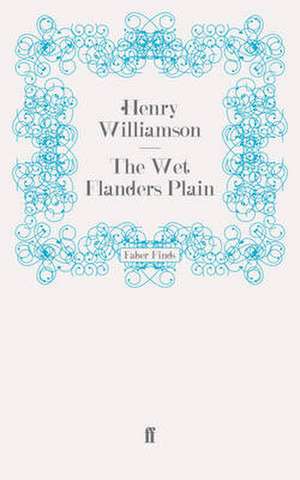The Wet Flanders Plain
en Limba Engleză Paperback – 14 apr 2011
In 1928, Henry Williamson and another unnamed veteran revisited the battlefields of Flanders and Northern France. In Williamson's own words he wanted to 'return to my old comrades . . . to the brown, the treeless, the flat and grave-set plain of Flanders - to the rolling, heat-miraged downlands of the Somme - for I am dead with them, and they live in me again.' He wanted to be rid of the 'wraith of the war'.
As he continued to be haunted by his experiences as a soldier, and continued to write at length about the Great War in both fiction and non-fiction works, it is doubtful if he was successful in that but what he does give us is a memoir that, as one reviewer put it, 'emerges from the mass of War books as the most beautiful and the most terrible.'
Preț: 129.63 lei
Nou
Puncte Express: 194
Preț estimativ în valută:
24.81€ • 25.80$ • 20.48£
24.81€ • 25.80$ • 20.48£
Carte tipărită la comandă
Livrare economică 09-15 aprilie
Preluare comenzi: 021 569.72.76
Specificații
ISBN-13: 9780571255221
ISBN-10: 0571255221
Pagini: 200
Dimensiuni: 135 x 216 x 15 mm
Greutate: 0.28 kg
Editura: FABER AND FABER LTD
ISBN-10: 0571255221
Pagini: 200
Dimensiuni: 135 x 216 x 15 mm
Greutate: 0.28 kg
Editura: FABER AND FABER LTD
Notă biografică
Henry Williamson (1895-1977) was a prolific writer best known for Tarka the Otter which won the Hawthornden Prize in 1927. He wrote much of else of quality including The Wet Flanders Plain, The Flax of Dream tetralogy and the fifteen volume A Chronicle of Ancient Sunlight all of which are being reissued in Faber Finds.His politics were unfortunate, naively and misguidedly right-wing. In truth, he was a Romantic. The critic George Painter famously said of him, 'He stands at the end of the line of Blake, Shelley and Jefferies: he is last classic and the last romantic.'
